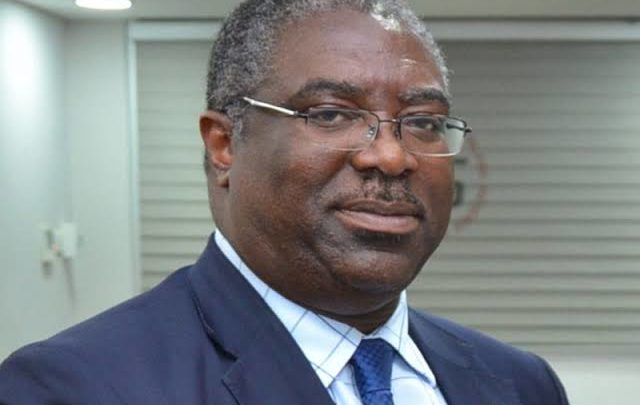Fowler: Propelling Nigeria’s economic reforms through FIRS

On assumption of office in 2015, the current administration was quick in identifying that sources from which the country earns revenue outside oil, the near-almighty revenue earner, were lean. The prices of oil on the international market had been dipping since 2014, creating the need for the government to seek other revenue streams. importantly too, the government needed a man to drive the process. It identified Babatunde Fowler who, as Chairman of the Lagos State Inland Revenue Service (LIRS), had driven the process that saw the state internally generated revenue jump from a monthly average of N3.6billion in 2006 to N25billion in 2015. Fowler was appointed as Executive Chairman, Federal Inland Revenue Service (FIRS) with a clear instruction, a daunting one, to replicate on a grander scale what he had did at the LIRS.
Four years after, it is expected that an appraisal would be conducted over the performance of the FIRS. Recently, a Northern youth group under the aegis of Arewa Youth Assembly (AYA) volunteered an assessment. Unsurprisingly, it was positive. According to the Speaker of the AYA, Muhammad Salihu Danlami, the assembly passed a vote of confidence on Fowler for facilitating the FIRS’ increase of non-oil revenue collection and contribution towards the country’s recovery from economic recession.
“Mr. Fowler took over the reign of FIRS at a time our country was going through economic depression amidst dwindling oil revenues. It was his sheer ingenuity through the raise of non-oil revenues base in many folds that brought out our country of the recession,” Danlami said.
Commendations have come from other sources, notably the Presidency. In a statement issued by Garba Shehu, Senior Special Assistant to the President on Media and Publicity, in August, the Presidency commended the rise in the country’s tax roll from 10 to 20 million, a figure that is expected to climb to 45million soon. “It is noteworthy and highly commendable that under this administration, the number of taxable adults has increased from 10 million to 20 million with concerted efforts still on-going to bring a lot more into the tax net,” the statement said.
Earlier in the year, Babangida Ibrahim, Chairman, House of Representatives Committee on Finance, was also quoted by the News Agency of Nigeria (NAN) as commending the FIRS for the achievements recorded over the years.
It is not difficult to understand why the FIRS is getting all the plaudits. As the comment from the AYA Speaker explains, Fowler took over the reins of the FIRS at a turbulent period for the country, economically. Aside the oil price decline, Nigeria plunged into a recession in 2016, its worst in 29 years. The economy contracted for two consecutive quarters, with the International Monetary Fund (IMF) slashing the country’s Gross Domestic Product (GDP) for that year to -1.8 percent.
Despite the economy deemed as contracting, the FIRS, in 2018, collected a total revenue of N5.32 trillion, which is the highest in the country’s history. The amount was an increase of N1.292 trillion from the N4.02 trillion collected in 2017. The Service had also collected N3.7 trillion in 2015 and N3.3 trillion in 2016. Also, in spite of the economic crunch, the FIRS actually achieved a higher total budget collection from 2016 to 2018 than from 2012 to 2014. The budget collection estimate from 2012 to 2014 was N12,190.52 trillion while the actual tax collection from 2016 to 2018 was N16,771.78, representing 37.58 per cent increase.
The country’s non-oil revenue collection has grown in leap and bounds since 2016. The non-oil revenue accounted for N6,206.22 trillion or 42.72 per cent of the total revenue derived from 2012 to 2014, while the same sector generated N7,510.42 trillion or 59.3 per cent from 2016 to 2018. The revenue, therefore, grew by N1,304.20 trillion or 21 per cent from 2014 to 2018. Also, since 2016, non-oil tax revenue still remains in excess of the oil tax revenue, an indication of the effect of the diversification effort by the FIRS.
In terms of Value Added Tax (VAT), the Service had achieved a 40 per cent increase from 2015 to 2017 in collection rate than from 2012 to 2014. Furthermore, the FIRS crossed the N1 trillion mark in VAT collection in 2018. The Service collected N1.1 trillion in 2018, which was N128 billion higher than the N972 billion collected in 2017 and N272 billion higher than 2016’s N828 billion collection. It also ensures that 85 per cent of VAT is distributed to state governments. It was also recently announced by the National Bureau of Statistics (NBS) that N311.94 billion was generated as VAT revenue between April and June 2019. The figure, according to the NBS represents a 7.92 per cent Quarter-on-Quarter increase from the N269.79 billion generated in Q2 of 2018, and a 16.95 per cent Year-on-Year.
Talking about widening the tax base, the number of taxpayers in Nigeria which was 10 million in 2015 increased to 14 million in 2017, and rose again to 19 million in 2018. And according to Fowler at an event recently, the number is expected to hit the 45 million mark in 2019.
Also, the FIRS has within the last four years been able to track Nigerian individuals and companies which hitherto failed to file in their tax returns, adopting the rapprochement approach to achieve its aim. In conjunction with the Federal Ministry of Finance, the FIRS launched the VAIDS (Voluntary Assets Income Declaration Scheme) programme. The VAIDS programme, as the name suggests, was initiated to help tax defaulters regularise their tax payment willingly. In 2016, the FIRS on its own gave a tax amnesty, which saw N92.6 billion was declared as unpaid taxes. A total sum of N92 billion in unpaid taxes was also declared by the Service when it re-launched VAIDS in 2017. The Service also generated an additional N12 billion previously unpaid by defaulters considered to have under-remitted taxes.
Similarly, the FIRS discovered that 6,000 of businesses which had a turnover in excess of N1 billion in their bank accounts did not have a Tax Identification Number (TIN) and did not file returns and make any payments. As a result of subsequent engagement, the affected businesses paid N21.75 billion in taxes and are paying the balance in instalments. The FIRS also reviewed businesses that had a banking turnover of between N100 million and N999 million. In collaboration with the banks, the Service uncovered that 45,361 of them that have TIN and are making payments; 40,611 that have TIN but have made no tax payment; and 44,504 that have no TIN and, therefore, have made no payments.
The tax collection agency also embarked on another special project through which corporate organizations that own companies or properties were not found within the tax net in 2017. Through this, it generated N1.33 billion in 2017 and N2.88 billion in 2018 in just Lagos and the Federal Capital Territory.
These gains achieved by the FIRS under Fowler can be attributed to the innovative strategies adopted, which led to the Service’s increased collection of non-oil revenue. This was achieved through various initiatives such as the utilisation of technology. The adoption of various e-payment channels by the FIRS has enabled Nigerian taxpayers to pay their taxes from anywhere in the world without any hassle whatsoever. A taxpayer can also choose the location of where you want your tax to be paid. For example, if a taxpayer is in Kano and, for whatever reason, wants the tax file to reside in Lagos, such a scenario is now permissible by the click of a button, thanks to technology. Therefore, as a result of the upgrade of the collection mechanism, tax payment has become faster, more convenient and more transparent.
The e-solutions system has witnessed a significant rise in patronage, with 59,350 taxpayers utilising this facility from the previous count of 9,574 users. Collection of the Tax Clearance Certificate has also been made a lot easier as taxpayers can apply for and receive it online immediately. Another huge benefit of the e-Solutions system is the establishment of the VAT automation programme, which allows for the automatic collection of VAT. In addition, the Service garnered N13 billion as a result of the automated deductions at source and remittance of VAT and Withholding Tax from state governments. The automation scheme has also facilitated information exchange between the FIRS with third-party databases and other government agencies.
The Service also initiated a massive continuous taxpayer education to sensitize Nigerians on the importance of remitting their taxes. It created the Federal Engagement and Enlightenment Tax Teams (FEETT) directorate continues to interact with taxpayers to help them file and register as taxpayers, and provide answers to any questions they may have in terms of ease of payment of tax.
Just recently, the FIRS established the Non-Resident Persons Tax Office (NRPTO), dedicated solely to the administration of taxes for Non-Resident Persons. According to the Service, non-resident taxpayers are a very important segment of the tax-paying public and an office was, therefore, created to devote specialised attention to them. NRPTO will be devoted solely to international taxation to serve non-resident persons, including all tax treaty operational issues, cross-border transactions, inter-company transactions and income derived by non-resident individuals in Nigeria.
These giant strides aforementioned are just part of efforts made by Fowler to reposition the FIRS towards providing effective services to Nigerians and more importantly, aid the Service’s contribution towards national and economic development.





